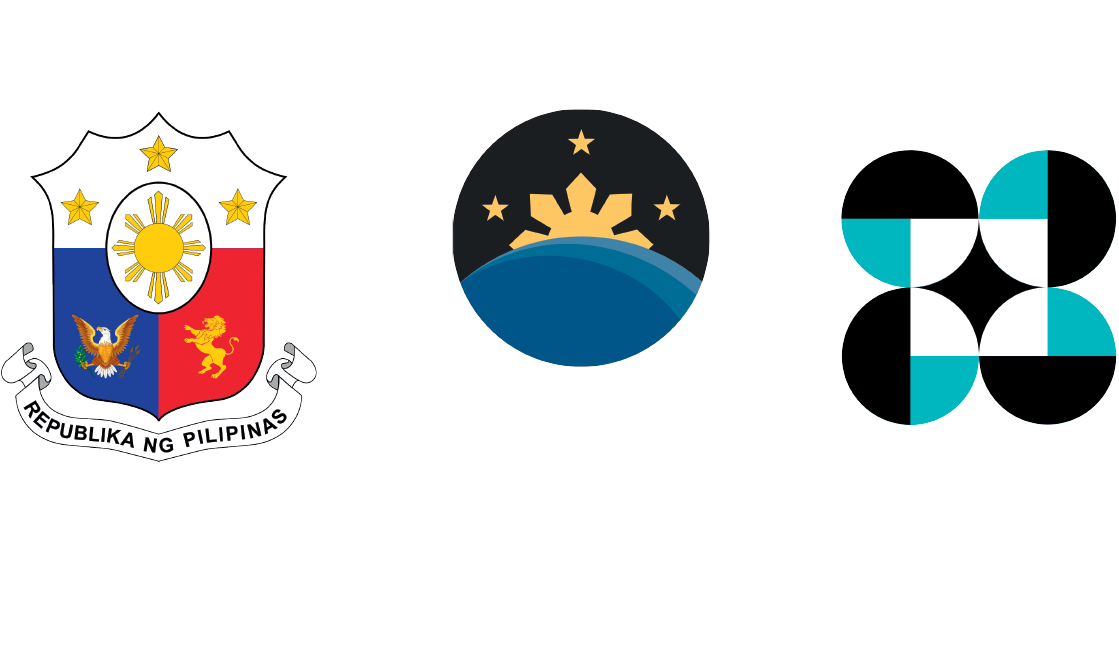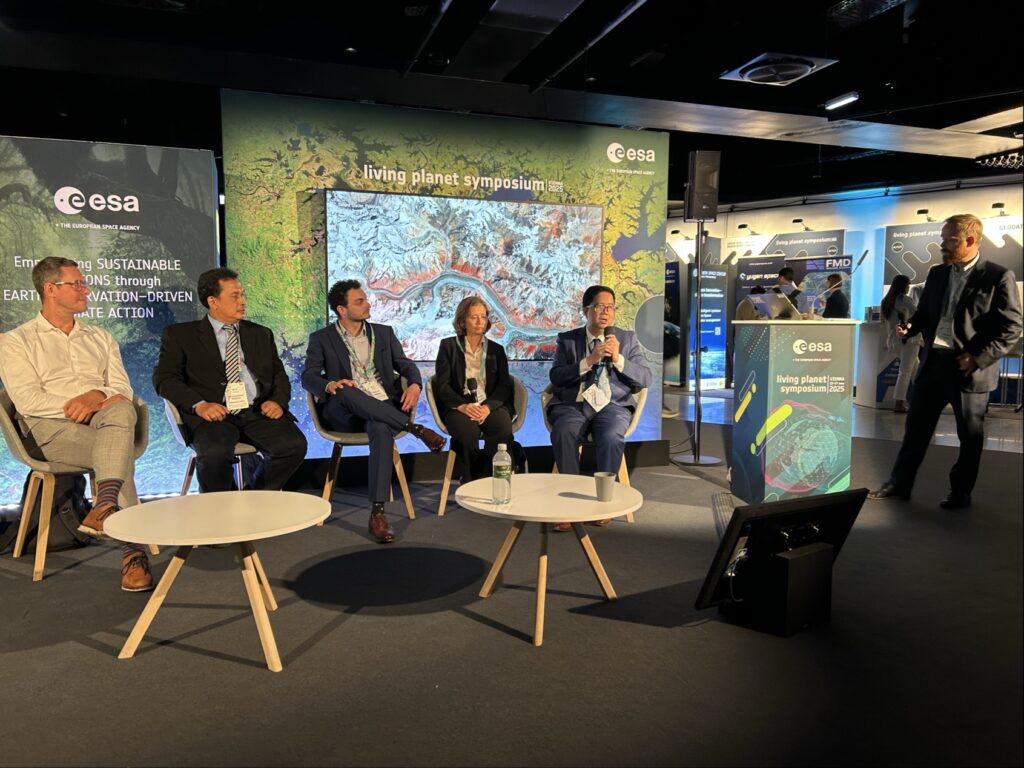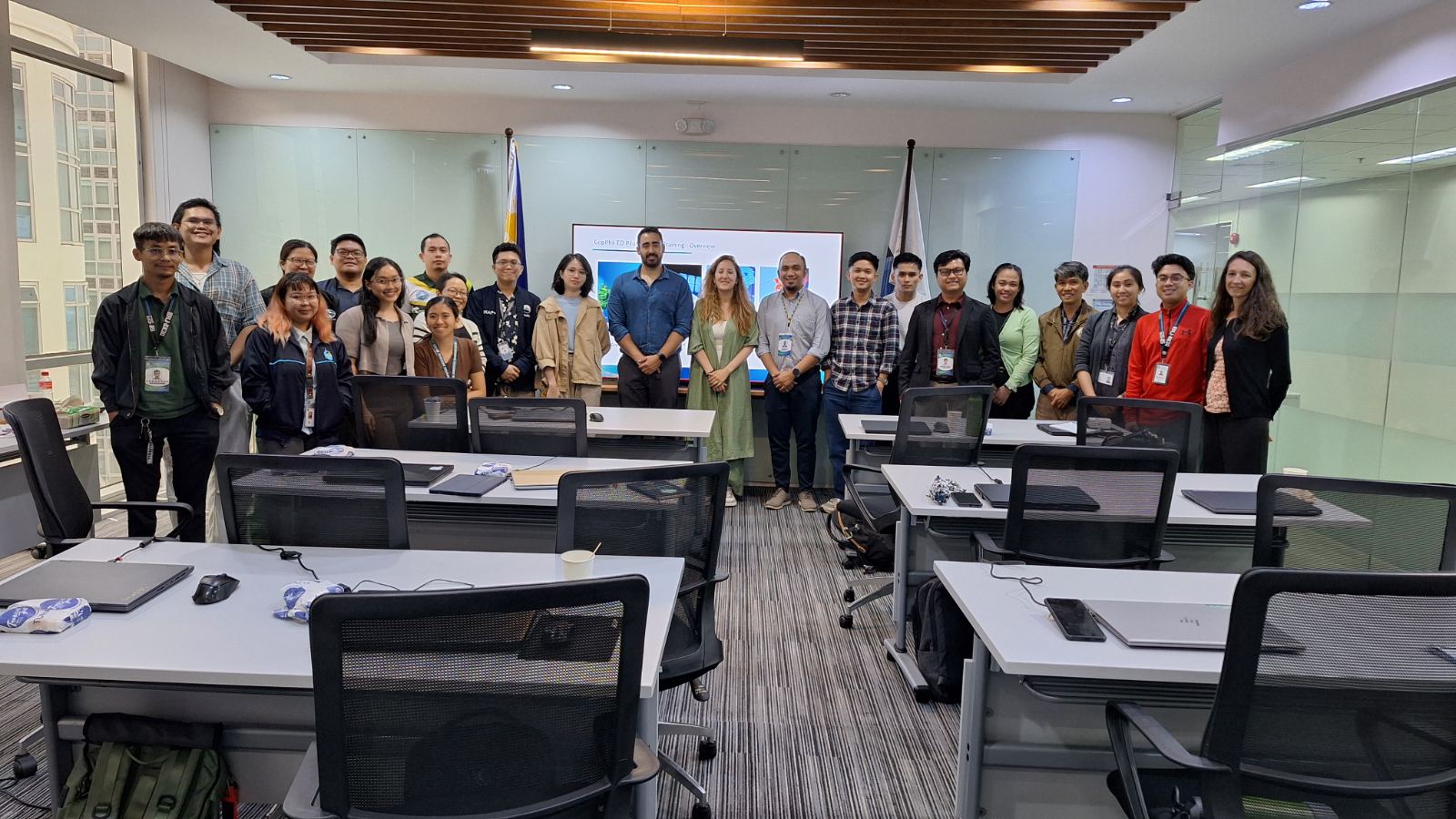From 23 to 27 June 2025, CopPhil representatives joined the European Space Agency’s (ESA) Living Planet Symposium (LPS) 2025, one of the world’s largest Earth Observation (EO) conferences.
The event, held in Vienna, Austria, brought together scientists, policymakers, and EO experts from across the globe to discuss the role of satellite data in tackling environmental and climate challenges.
As part of the European Union’s Global Gateway strategy, CopPhil showcased how its EO-based pilot services are fostering cooperation, capacity building, and sustainable development in the Philippines. Our team presented the initiative’s progress across multiple fronts, from technical advancements to international collaboration.
Keep reading to learn how CopPhil representatives brought their perspectives and insights to LPS through panel discussions, presentations, and poster sessions, as well as during a side event and the plenary of the 68th session of the UN Committee on the Peaceful Uses of Outer Space (COPUOS).
Fostering International Collaboration for Local Impacts
A key theme of CopPhil’s presence at LPS was the ways in which the initiative is promoting international collaboration related to the use of EO data in the ASEAN region.
In her presentation on the CopPhil Benthic Habitat Monitoring Service, Anne-Laure Beck highlighted how CopPhil has successfully fostered collaboration between EO service providers and local stakeholders in the Philippines. She emphasised the initiative’s role in supporting more effective, data-driven environmental management on the ground, including applications in coastal marine habitat monitoring.

Highlighting CopPhil’s Progress in Capacity Building and Pilot Service Development
As part of LPS, CopPhil’s Carla Mae Arellano and Etienne Ducasse presented posters detailing the initiative’s efforts in EO capacity building and the development of the pilot service dedicated to land cover mapping. Their contributions showcased the tangible progress made in supporting Filipino institutions in leveraging free and open Copernicus data for informed decision-making related to environmental and resource management. Find their posters available for download here.
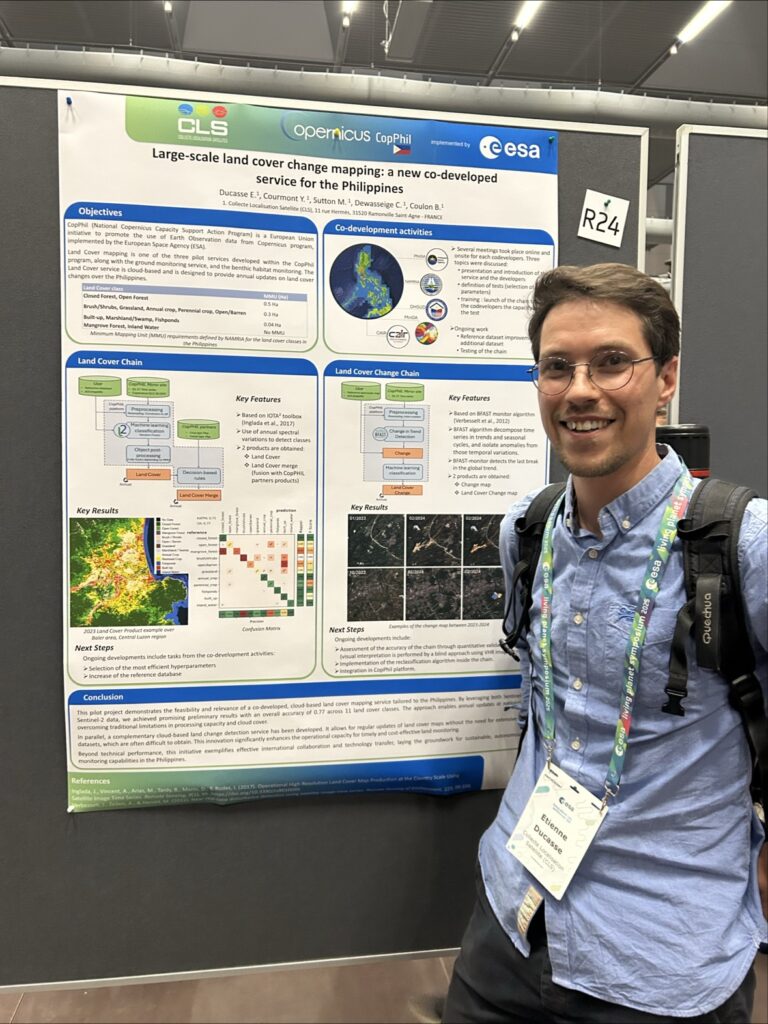
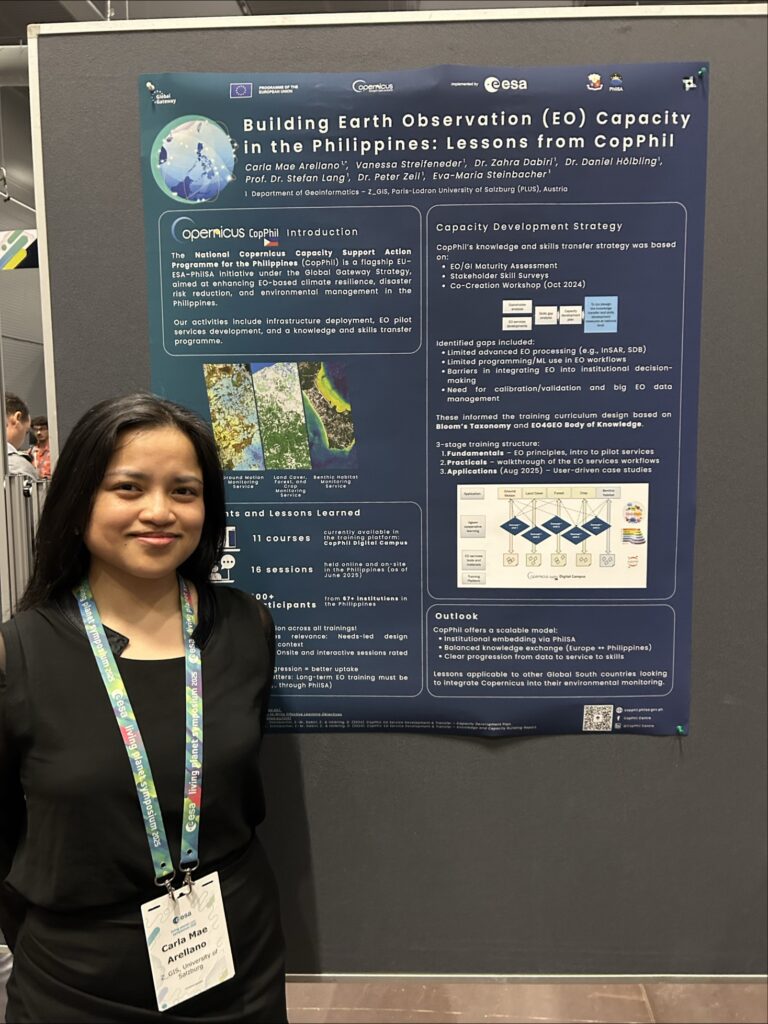
Scaling Copernicus Earth Observation data uptake in the ASEAN region
A key highlight of CopPhil’s presence at LPS was a dedicated panel session titled “Enhancing Earth Observation Uptake in the Philippines and the ASEAN Region.” Moderated by Casper Fibæk, the CopPhil Project Officer at ESA, the session featured regional insights into the opportunities and challenges in mainstreaming EO data in the region.
During the discussion, Ariel C. Blanco, Director of the Space Information Infrastructure Bureau at the Philippine Space Agency (PhilSA), emphasised how CopPhil’s pilot services, which are jointly developed by Filipino user institutions and CopPhil consortium experts, have been instrumental in facilitating knowledge transfer, building national expertise, and fostering interinstitutional collaboration. The panel also explored how CopPhil’s success will serve as a blueprint for broader efforts to expand the use of Copernicus data in the region.
In particular, participants discussed the forthcoming EU-ASEAN Sustainable Connectivity Package (SCOPE) Digital initiative, which will build on the lessons learned from CopPhil. With pilot activities planned in Indonesia and Thailand, in partnership with Indonesia’s National Research and Innovation Agency (BRIN) and Thailand’s Geo-Informatics and Space Technology Development Agency (GISTDA), the initiative will support EO data processing, digital transformation, and sustainable environmental solutions across the ASEAN region.
Marking a milestone in regional cooperation, ESA and GISTDA signed a Letter of Intent during the symposium, formalising their commitment to working together on EO applications in agriculture, disaster risk reduction, and natural resource management.
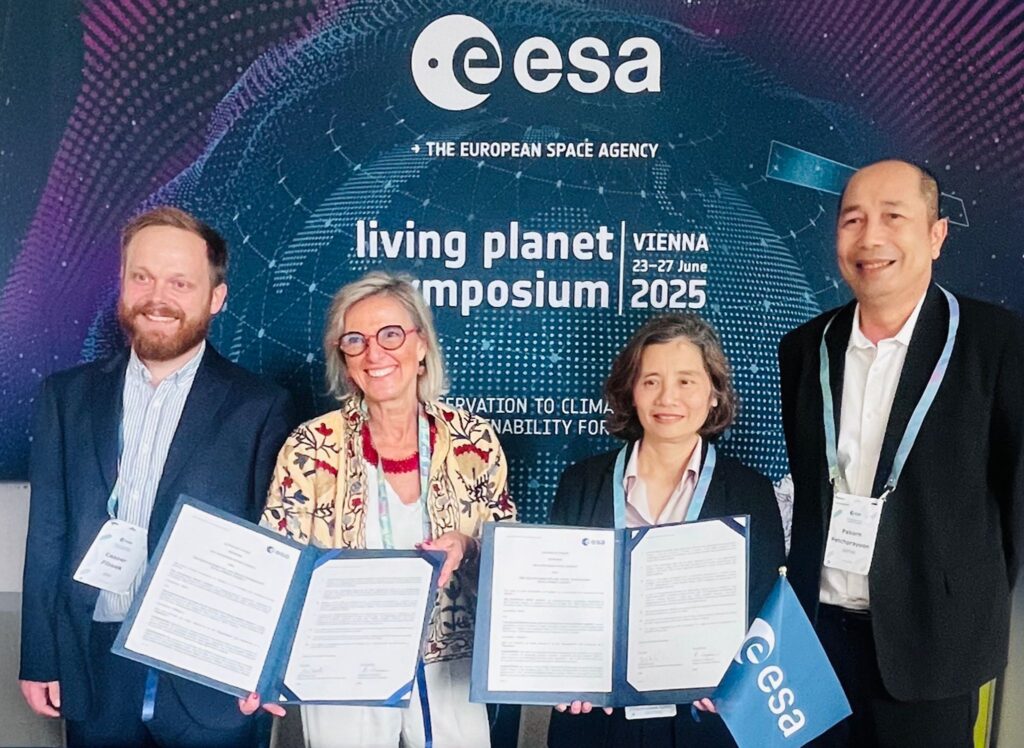
CopPhil was also showcased at the side event and plenary of UN COPUOS. There, Ariel C. Blanco underscored the strategic importance of international partnerships. He called for greater collaboration among national space agencies to maximise the value of shared EO data, technology, and expertise in addressing environmental challenges in the ASEAN region and globally.
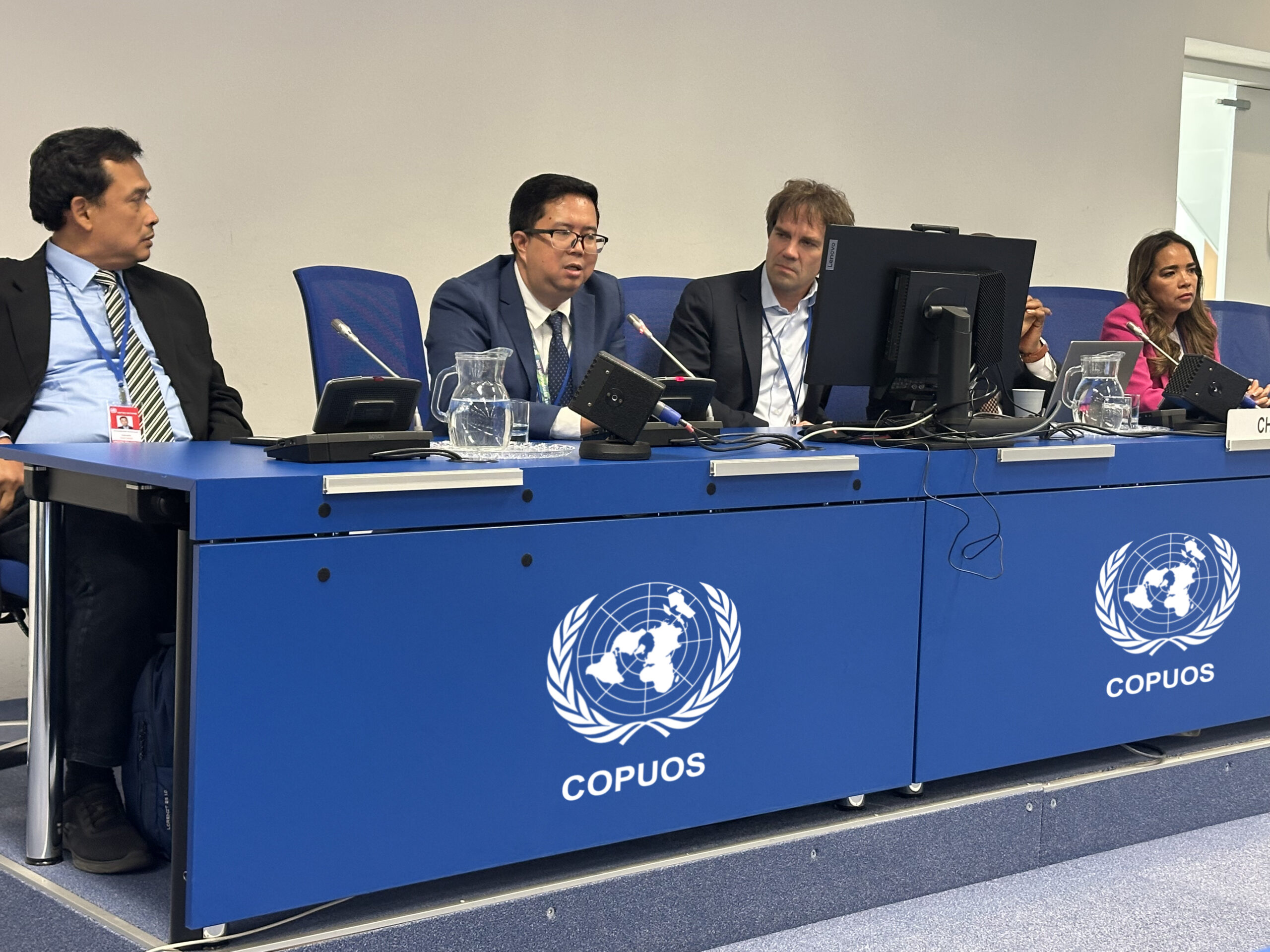
Looking Ahead
CopPhil’s strong presence at LPS highlighted its growing role as a model for international cooperation on EO. As the initiative continues to expand its pilot services and capacity building and knowledge transfer activities, including those focused on forest and crop mapping, and ground motion monitoring, it will remain a key component of the EU’s Global Gateway broader commitment to supporting resilience, sustainability, and innovation in the Philippines and beyond.
For updates on CopPhil’s activities, follow us on LinkedIn and Facebook.
Background Information
As a flagship and unique programme of the EU’s Global Gateway strategy, CopPhil is designed to harness digital resources and space technology for sustainable development and to support innovations in research and business in close cooperation with government partners.
CopPhil is managed by the European Union Delegation to the Philippines. It is implemented by the European Space Agency (ESA) in partnership with the Philippine Space Agency (PhilSA) and the Philippine Department of Science and Technology (DOST).





